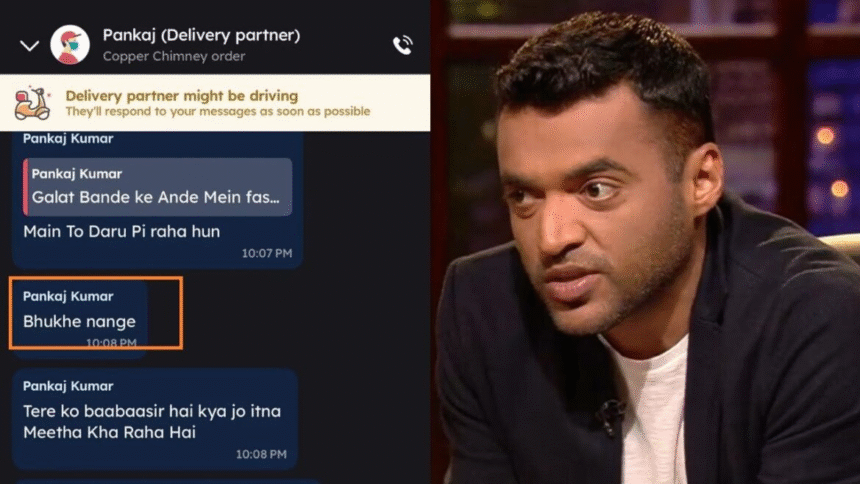The Incident That Sparked Outrage
In an era where customer service can make or break a brand’s reputation, food delivery giant Zomato finds itself in hot water after a delivery executive allegedly used derogatory language toward a customer. The incident, which has now gone viral across social media platforms, has reignited discussions about professionalism in the gig economy and the treatment of customers by delivery partners.

The controversy erupted when a customer shared screenshots of a WhatsApp conversation with a Zomato delivery partner, where the delivery executive reportedly called the customer “bhookha nanga” (hungry and naked/poor). The offensive language has not only shocked the customer but has also drawn widespread criticism from netizens across various social media platforms.
What Exactly Happened?
According to the viral screenshots, the incident began with what appeared to be a routine food delivery interaction. However, the conversation quickly escalated when the delivery executive allegedly became frustrated with the customer’s requests or complaints about the service.
Key Details of the Incident:
- Platform: Zomato food delivery service
- Mode of Communication: WhatsApp chat
- Offensive Language: “Bhookha Nanga” directed at customer
- Customer Response: Immediate shock and decision to share screenshots publicly
- Viral Impact: Thousands of shares and comments across social platforms
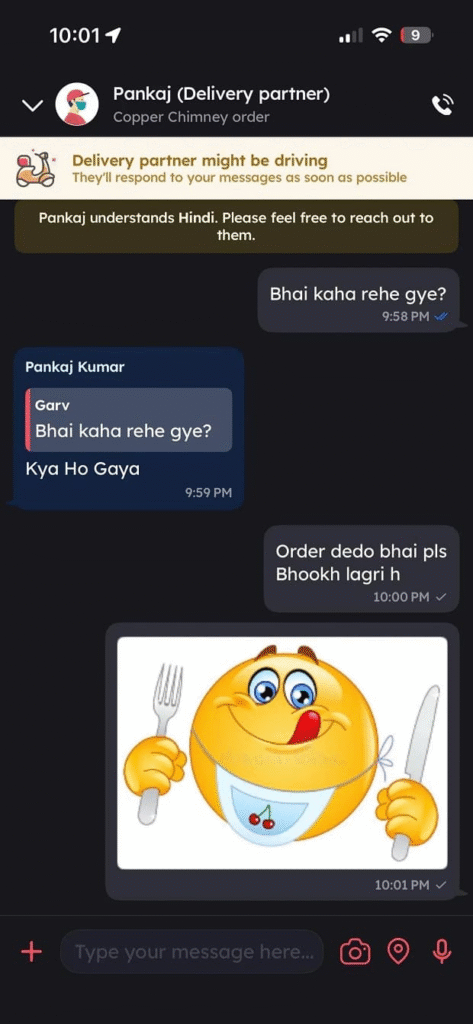
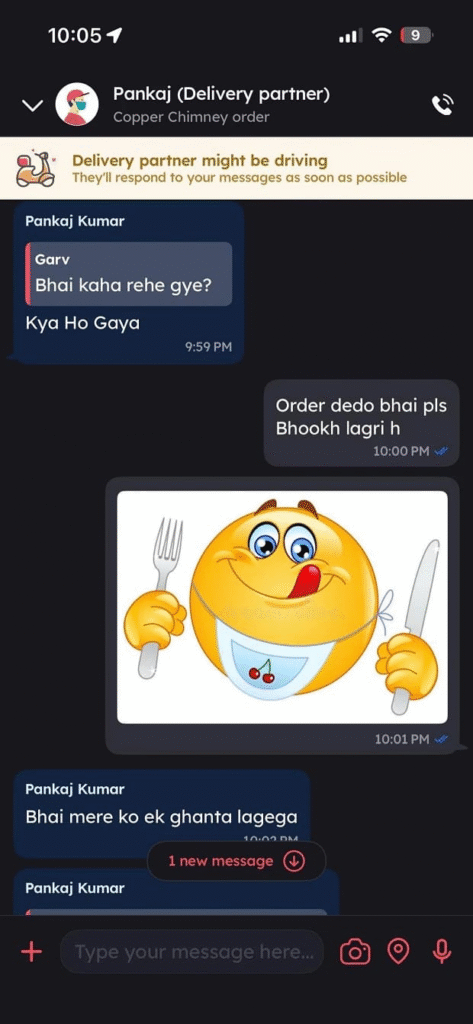
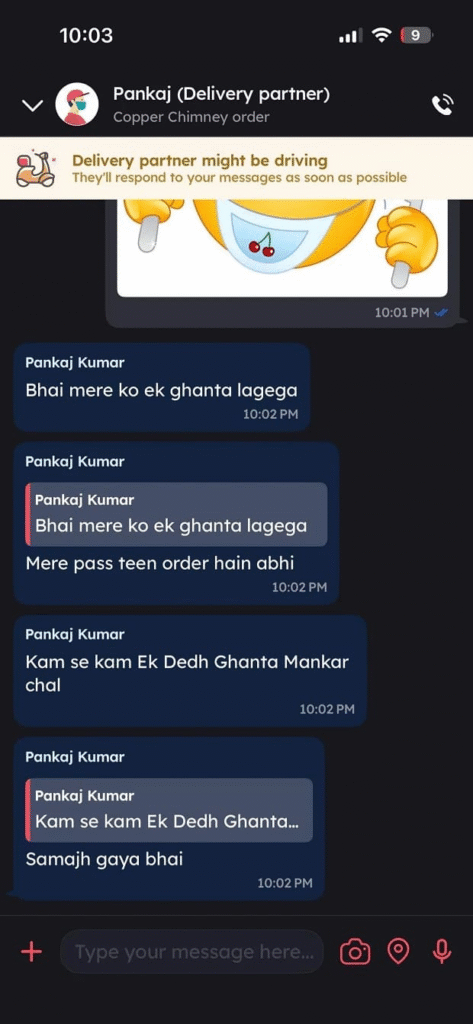
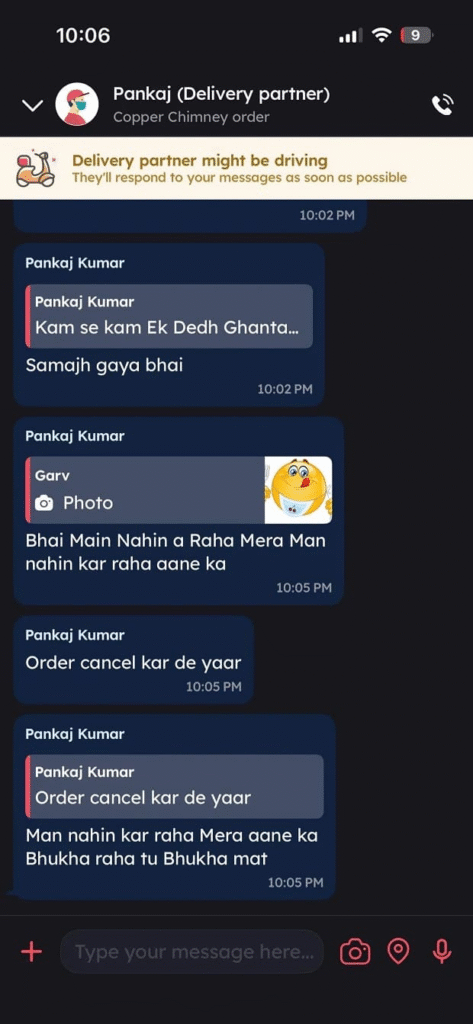
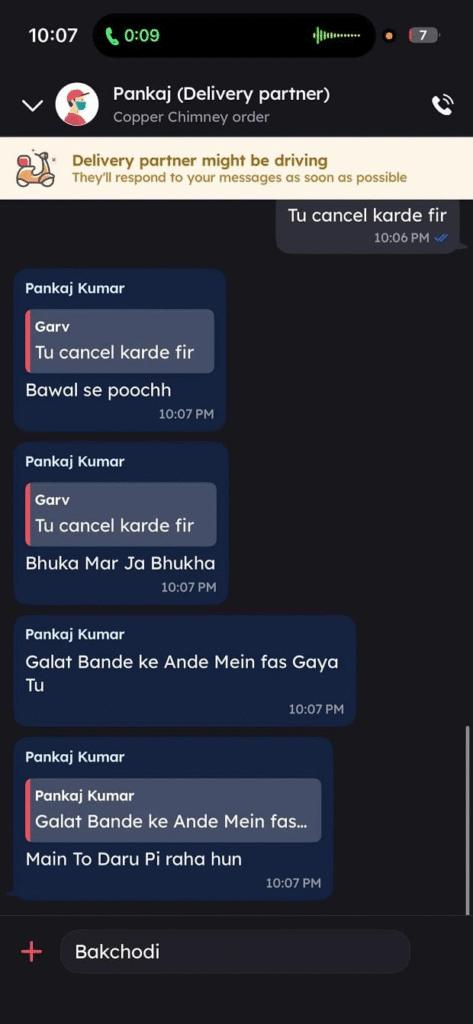
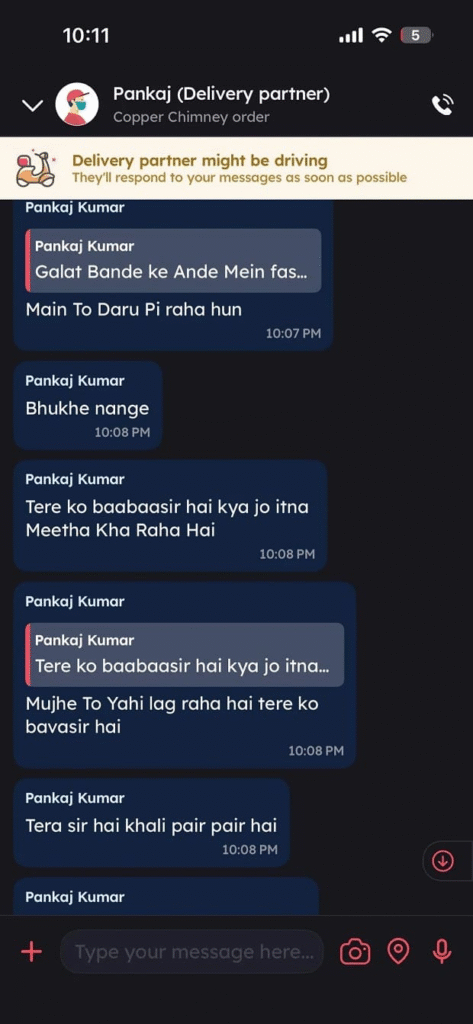
The exact trigger for the delivery executive’s inappropriate response remains unclear, but the impact has been swift and severe, with the screenshots garnering thousands of reactions within hours of being posted.
Social Media Erupts in Support of Customer
As soon as the screenshots hit social media, users from across the country began expressing their outrage over the unprofessional conduct. The incident has sparked a broader conversation about:
Public Reactions Include:
- Calls for immediate action against the delivery executive
- Demands for better training of delivery partners
- Questions about Zomato’s hiring and monitoring processes
- Support for the affected customer
Bhookha toh mai tha vese
byu/Godhakklu inZomato
Many users have shared their own experiences with delivery services, both positive and negative, creating a larger dialogue about service quality in the food delivery industry.
The Broader Impact on Zomato’s Brand
This incident couldn’t have come at a worse time for Zomato, which has been working hard to maintain its position as India’s leading food delivery platform. The company has invested heavily in:
- Customer satisfaction initiatives
- Delivery partner training programs
- Brand reputation management
- Quality assurance measures
Potential Consequences:
- Immediate PR Crisis: Negative publicity across social media
- Customer Trust Issues: Doubts about service quality standards
- Competitor Advantage: Rivals may capitalize on the controversy
- Internal Review: Likely assessment of delivery partner protocols
Zomato’s Response Strategy
While the company’s official response to this specific incident is still awaited, Zomato has historically taken swift action in similar situations. The food delivery giant typically follows these steps:
Expected Response Framework:
- Immediate Investigation: Review of the incident details
- Disciplinary Action: Potential termination or suspension of the delivery partner
- Customer Compensation: Apology and possible refund/credits
- Policy Review: Assessment of current training protocols
- Public Statement: Official clarification on social media channels
Industry-Wide Implications
This incident highlights several critical issues plaguing the gig economy and food delivery sector:
Training and Professionalism
- Need for comprehensive behavioral training
- Regular refresher courses on customer interaction
- Clear guidelines on communication standards
Monitoring and Accountability
- Better oversight of delivery partner conduct
- Implementation of feedback systems
- Regular performance evaluations
Quality Control Measures
- Background verification processes
- Continuous monitoring of customer interactions
- Swift action protocols for misconduct
Lessons for Other Food Delivery Platforms
Competitors like Swiggy, Uber Eats (where operational), and other regional players are likely taking notes from this incident. Key takeaways include:
- Prevention is Better Than Cure: Proactive training programs
- Swift Response Protocols: Quick action when issues arise
- Transparent Communication: Open dialogue with customers about incidents
- Continuous Improvement: Regular updates to service standards
What Customers Can Do
If you find yourself in a similar situation, here’s what experts recommend:
Immediate Steps:
- Document Everything: Take screenshots of conversations
- Report to Platform: Use official complaint channels
- Stay Calm: Avoid escalating the situation further
- Seek Compensation: Request appropriate redressal
Long-term Actions:
- Share Feedback: Help platforms improve by reporting both good and bad experiences
- Support Ethical Businesses: Choose platforms with better service standards
- Spread Awareness: Share experiences to help other consumers
The Road Ahead
As this story continues to develop, several questions remain:
- Will Zomato take decisive action against the delivery partner?
- How will this incident affect the platform’s reputation long-term?
- What measures will be implemented to prevent similar occurrences?
- How will competitors position themselves in light of this controversy?
Final Thoughts
The “bhookha nanga” controversy serves as a stark reminder that in the digital age, every customer interaction matters. With screenshots and social media making it easier than ever to expose poor service, companies must prioritize training, monitoring, and maintaining high standards of professionalism.
For Zomato, this incident represents both a challenge and an opportunity – a chance to demonstrate their commitment to customer service and set new standards for the industry.
Disclaimer: This article is based on viral social media reports. We will update the story as more official information becomes available.
